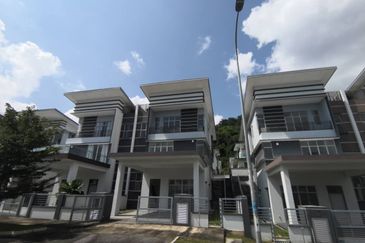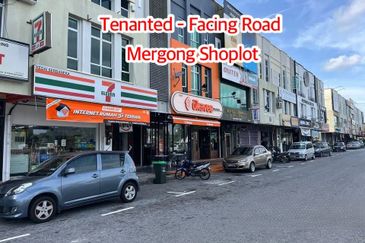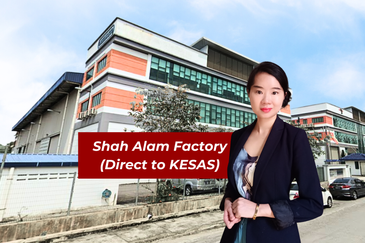
IN barely two weeks on May 5, Londoners will head to the polls to vote for a candidate they deem worthy to replace current London mayor Boris Johnson in running the British capital city.
The implications of this leadership race may not be as far-reaching as the presidential elections across the pond in the United States later this year; nonetheless, London’s mayoral election does attract a fair amount of attention. The mayor of London, a relatively new position created only in 2000, oversees one of the world’s most dynamic cities and has direct influence on matters including the city’s transport, housing, strategic planning and environment, and economic development.
For the past 16 years, the mayoral seat has been dominated by the charismatic personalities of incumbent Johnson and his predecessor and Labour Party rival Ken Livingstone, both described by The Independent as national figures who “were bigger than their parties locally”.
This year’s race is no less personality-driven, as it seems to be turning into an intense head-to-head race between the two (out of 12) candidates who are leading in the opinion polls: Labour Party’s Sadiq Khan and the Conservative Party’s Zac Goldsmith. Compared with their larger-than-life predecessors, both were relatively unknown among the London electorate, but their personal narratives couldn’t be more different from one another.
On one end of the spectrum is Khan, the son of a British-Pakistani bus driver who grew up in a council estate in his constituency of Tooting in south-west London. A human rights lawyer and a savvy campaigner who ran former Labour Party leader Ed Milliband’s successful leadership bid in 2010, Khan will become London’s first Muslim mayor should he gain the most votes next month.
In contrast, Goldsmith comes from a much more privileged background. Son of the late billionaire tycoon Sir James Goldsmith and brother of Jemima, he was educated at Eton and is married to Alice Rothschild, a scion of the banking dynasty. Goldsmith, who is member of parliament for the affluent constituency of Richmond Park, is well known for being an environmentalist as well as for his Eurosceptic views.
Personalities aside, both candidates are being assessed on their policies across key issues such as jobs, transport and air pollution, including the controversial Heathrow expansion proposal. But no other issue is as critical as London’s severe shortage of housing, particularly affordable homes. Average house prices for first-time homebuyers have shot up 54% from £271,000 in 2008 to £419,000 last December, while monthly rents have doubled from £850 in 2007 to £1,670 (RM9,541) currently, the Londonist website reported.
Goldsmith and Khan have put housing as top priority in their manifestos, both pledging to increase London’s housebuilding to meet the capital city’s needs for 50,000 homes or more annually, as its population is expected to rise to 10 million by 2031. Khan is also targeting 50% of all new homes built in London to be set aside as affordable housing, either for rent or purchase. This has, however, been met with some scepticism, as former mayor Livingstone had difficulties enforcing a similar “50% rule” during his time in office.
There are also promises to improve standards in the private rental sector, albeit in different ways. Khan wants to introduce rent control in the form of the London Living Rent, which will base rents on a third of average local wages, while Goldsmith proposes that landlords be required to provide tenants with certainty by offering three-to-five year tenancies with any future rent increases agreed at the contract’s start.
Crucially, the candidates are also promising to prioritise Londoners for all new homes built on government-owned land, in an effort to address concerns about foreigners buying up homes in the capital city and pricing many locals out of their own city. Goldsmith has even used the strong rhetoric of “banning” foreign investors for the first year of these new homes being put on sale.
Responding in an editorial, Evening Standard admits that such a ban would remove a distortion from the London property market, noting that it’s unacceptable for developments to be marketed abroad before locals have a chance to bid for them. The London-centric newspaper cautions, however, that it should not be an anti-investor or anti-foreigner move.
As the May 5 polling day approaches, Labour’s Khan is currently leading in the opinion polls as well as being the bookmakers’ favourite to win next month. His chances are also given a confidence boost by Labour’s successful performance in winning 45 out of the 73 parliamentary seats in London during last year’s general election.
Those following the race closely say, however, that Goldsmith’s chances of wresting the seat from his popular rival will depend on his party’s targeting of outer London boroughs. Current mayor Johnson had used this “doughnut strategy” successfully to counter Labour’s perceived strength in inner London and beat Livingstone both in 2008 and 2012, the Guardian reported.
Whoever succeeds in replacing Johnson will face formidable issues in the city, including the unenviable task of treading a fine line between local interests and the international nature of the British capital city, which has drawn in much foreign investment over the years, particularly to its property market.
Lim Yin Foong was editor of Personal Money, a Malaysian personal finance magazine that was published by The Edge Communications. She is currently based in the UK.
This article first appeared in The Edge Singapore on April 25, 2016.
TOP PICKS BY EDGEPROP

Bandar Seremban Selatan
Seremban, Negeri Sembilan

Taman Bandar Senawang
Seremban, Negeri Sembilan

Park Place @ ParkCity
Desa Parkcity, Kuala Lumpur






















